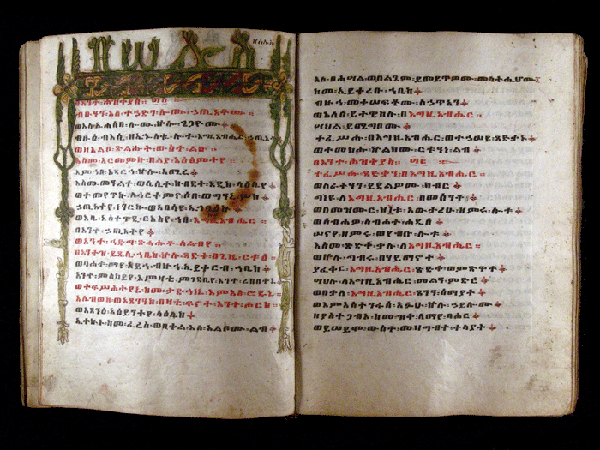This past week I worked through the recent (2012) autobiography of Lamin Sanneh, who grew up a Muslim in poor rural Gambia and then converted to Christianity as a young man. He has gone on to become a prominent theologian of Christian expansion in the global south – in a similar vein as Philip Jenkins.
My opinion on the book as a whole and of Sanneh’s thought is a bit mixed, but I really enjoyed much of what I read. Here is what I copied down as a few of the most interesting passages along with a few comments.
—
In a village with virtually no books, he recounts his finding of a half-burnt copy of a book by Helen Keller. I know she gets used to often as “inspirational” figure, but in this case her work quite literally was.
By what can only be regarded as a miraculous coincidence, a chance encounter with the writings of Helen Keller (1880-1968) burst the chains of my intellectual confinement. When I was around eight years old, I was walking down a dirt road and I kicked up a pile of papers strewn at a garbage dump. What looked like the remnants of a book caught my attention. After I rummaged in the pile and stood up, I was holding torn leaves from Helen Keller’s autobiography, The Story of My Life (1902). I had recently learned to read, and with the thrill of a beginner stumbling on a godsend, I devoured Helen Keller’s words, entranced by her description of how she herslef learned to read. She described how she acquired literacy by Braille, and how she moved from silence and darkness to a life of vision and triumph over adversity. She insisted that although the world is full of suffering, the world is also full of the overcoming of suffering. I was enchanted, and could barely contain myself. I was not blind in the physical sense, true, but I was trapped by my adverse circumstances. The world felt strange and impenetrable, and this was God’s will, I thought. In stepped Keller with a new message ‘nil desperandum’, never despair. The true adventure of life, she taught me, lies not in destinations but in having new eyes to see the world. (p.18)
—
Philip Jenkin’s often explains that Christianity just makes a lot of sense to people coming directly out of a traditional culture of blood sacrifice. That is, they are much more likely to take the Bible seriously without any mental gymnastics than children of the enlightenment. Think about the Psalmist and how distant his culture really was from that in the west.
[My sister] Maie chided me often, saying the West had made me successful, but only superficially. She pleaded with me to hold up my end of tradition by taking many wives, or at least by fathering many more children. I was being brainwashed, she insisted, to wait for Cupid’s arrow to stab me before asking for a quiver full of children. When I replied that life in America ruled out such calculations, she responded somewhat dismissively, “I am talking about the eternal law. Even America cannot defy the law of reproduction, which is God’s will.” How could I make the unnatural natural? It did not matter to her that she had never been to America; neither, it occurred to me, would it have mattered to the ancient scribe who wrote, “Your wife will be like a fruitful vine within your house; your children will be like olive shoots around your table” (Psalm 128:3) (p.35)
—
On people discouraging him from studying theology.
My interest in theology was rebuffed at every turn. I recall and American student guide at Union Theological Seminary in New York City pointing me to the study of African folk religion instead of theology in graduate school. That is where you can make a real contribution, he said. I encountered similar attitudes elsewhere. A prominent Methodist churchman based in London advised me against theology during his African tour, saying the church should better spend its scarce resources feeding the hungry than in supporting theological bursaries. An eminent African theologian of his day, Harry Sawyerr, expressed skepticism in a different way when I sought his wisdom: the vocation of theology, he said, should draw you in rather than being something you choose because of personal experience. I didn’t see the difference. (p.145)
I have heard this line of reasoning before and I’ve believed it. I am beginning to have some second thoughts though.
—
The following is a great section on how leaders in the west have been incredibly dismissive of the recent Christian resurgence in Africa and parts of Asia. Why discount it so much? It doesn’t seem to line up with the highly scientific definitions of value that we are in thrall too. If sanitation is still bad then Jesus must be a joke. If the country is still run by a dictator that it must mean that God doesn’t do jack squat for the people, right? I’ve wondered the same thing at times. Sanneh’s comments here are a proper antidote to that line of thinking.
Beyond issues of reliability, critics have faulted the resurgence [of Christianity] for failing to deliver the Third World from its chronic problems of AIDS, corruption, tribal conflict, and general backwardness. For that reason, however otherwise accurate, the numbers are meaningless, for they indicate no movement toward improved sanitation and a higher standard of living. At this point of skepticism one realizes that critics have a much larger target in mind than mere quibbles about numbers, and that is the view that Christianity is valid only when it brings about a higher standard of living. In this view Christianity should be a stepping stone to a better life here and now, or its spread is extension of an illusion. Perhaps we should take the statistics as evidence of social regression, of movement backwards, the critics insist. These critics see progress as an evolutionary vaccine against the parasite of religion, explaining why the parasite migrates and festers in areas of limited progress, infecting those still fixated on their childhood fantasies. In the critics’ view the breeding grounds of religion are the shadow lands of progress.
Except by being equally dogmatic, one can provide no satisfactory answer to this sweeping objection except to say that it ignores a crucial dimension of the reality of religion and its roots in the human spirit. Religion has an other-worldly dimension, to be sure, but indubitably also a this-worldly dimension of moral progress and social justice. In their different ways St. Francis of Assisi and John Wesley attacked poverty, but attacked equally the dehumanization of the poor. The witness of Mother Teresa of Calcutta was in part a challenge to the idea of progress without social conscience. In that respect the breeding grounds of religion are the spawning fields of the struggle for justice and dignity. The religious voice is often a critical reality in the otherwise callous world of greed and self-centeredness. Progress cannot outgrow justice.
Critics who are jaded with the religion of their upbringing and are still in the throes of recovery find it hard to be sanguine about the rising fortunes of a religion that has been the source of their disappointment. But the criticism is overreaching in the sense that one may no more blame the early Christians for their faith not preventing the fall of the Roman Empire, or a Christian Europe for not preventing Nazi and Stalinist pogroms, than post-Western Christians for the resurgence not preventing the political and economic collapse of their societies. The stakes cannot suddenly be higher for Third World Christianity than they were for Western Christianity. (p.231)
—
Here, Sanneh points out a key distinction between Christianity and Islam. The first transforms cultures by adapting and integrating them. The other fundamentally swallows them up. Christian missions have tended to fail when they try to act too much like the latter. “Jesus meets you where you are at” linguistically it would seem.
The embrace of the local name of God is a vital difference between Christianization and Islamization, and the discrepancy has lessons for the history of religion generally. Without the indigenous anticipations of the religion, the prospects of Christianity taking root are slim. Unless converts are able to call on the name of God in the vernacular, they remain fundamentally at risk of sliding away from the faith.
Vernacular translation, then, is key to cultural retrieval, renewal, and transformation, the secret to intercultural encounter in its positive phase. Without translation and its indigenous currency, cultural symbols in their isolation atrophy and eventually disappear when challenged. In Islam “Allah” is not translatable for the purposes of worship and devotion. Adoption of Islam in a traditional religious society strains reliance on the old deities. It may take several generations, but eventually “Allah” will have no acceptable local rivals or analogues. (p.233)
—
This paragraph on the chasm between specialists and politicians in Washington D.C. is right on the money.
I doubt whether there is anywhere else in the world such as high concentration of experts and specialists in as many fields as there are in Washington, D.D., or where the gap is so great between them and the policies of government. I learned, in that sense, that a dynamic democracy can take a huge toll on the purveyors of scientific knowledge and accumulated experience, because what is politically expedient may not be reconcilable with that evidence and experience require. Political mobilization thrives in a parallel universe of its own making, with the effect that the world of facts and evidence is often too tame and innocent for the cutthroat business of wining allies and disarming enemies. (p.260)
—
At one point in the book, he takes a justified pot shot at the prosperity gospel.
It remains fascinating that in the age of televangelism and the megachurch movement, the Catholic church has ceded ground to the prosperity gospel preachers who offer wealth, health, success, and instant miracles for cash first and last. Religious indulgences have staged a comeback, apparently, only this time not in the Catholic church. Religion as a market franchise will take cargo of any and all dimensions – other than that of the crown of thorns. (p.276)



